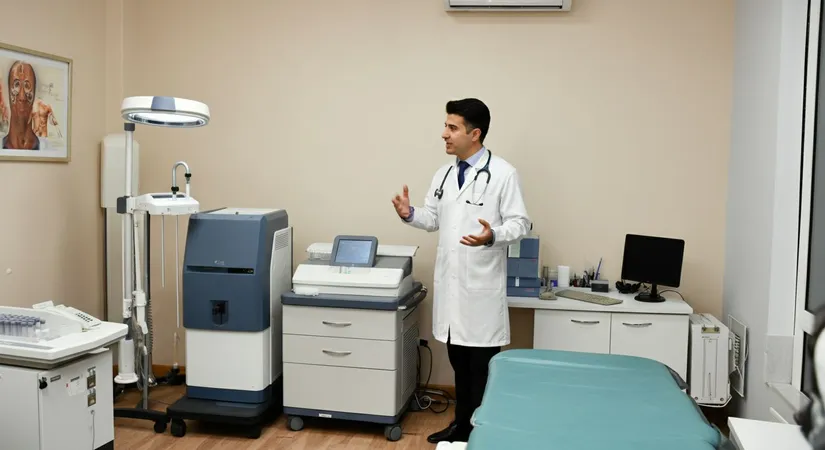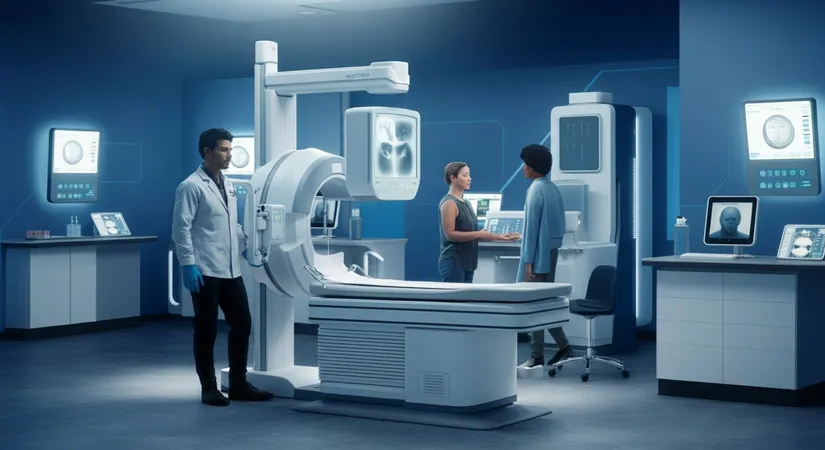Unlocking the Power of Diagnostic Methods
In the ever-evolving landscape of healthcare, diagnostic methods play a pivotal role in early disease detection and effective treatment planning. Understanding these methodologies is essential for both healthcare professionals and patients. This comprehensive guide delves into the revolutionary impact of diagnostic tools and techniques in modern medicine.
Understanding Diagnostic Methods: A Comprehensive Guide
Exploring the Range of Diagnostic Tools
Diagnostic tools are essential in modern healthcare, offering a variety of methods to detect diseases early. These tools range from traditional imaging techniques like X-rays and MRIs to advanced laboratory tests and biometric analyses. Each tool provides unique insights, enabling healthcare providers to tailor treatments to individual patient needs. For instance, MRIs are invaluable for detailed brain imaging, while blood tests can reveal metabolic disorders. Understanding these tools’ capabilities helps clinicians make informed decisions, ultimately enhancing patient care.
Key Features of Diagnostic Tools
- Non-invasive imaging techniques like ultrasound provide real-time insights without discomfort.
- Laboratory tests offer precise data on blood chemistry and genetic markers.
- Biometric analysis uses AI to predict disease risks based on physiological data.
These features highlight the versatility of diagnostic tools in addressing diverse medical needs. By integrating these tools, healthcare systems can improve diagnostic accuracy and patient outcomes.
Steps in Implementing Diagnostic Methods
- Initial patient assessment to determine the appropriate diagnostic method.
- Conducting the diagnostic procedure with precision and care.
- Analyzing results to formulate a personalized treatment plan.
Each step is crucial in ensuring that diagnostic methods are effectively utilized. For more insights into optimizing health through diagnostics, visit Unlocking the Secrets of Diagnostic Methods for Optimal Health.

How Diagnostic Tools Revolutionize Disease Detection
Innovative Technologies in Medical Diagnostics
Medical diagnostics have evolved significantly, with innovative technologies enhancing disease detection. AI-enhanced imaging, for instance, provides detailed insights into complex conditions. This technology can identify minute anomalies in scans, which might be overlooked by human eyes, thus improving diagnostic accuracy.
Advantages of Advanced Diagnostic Tools
- AI algorithms analyze vast datasets to predict disease patterns, offering proactive healthcare solutions.
- Genetic testing reveals predispositions to certain diseases, enabling preventive measures.
- Wearable devices monitor real-time health metrics, alerting users to potential health issues.
These advancements in diagnostic tools not only enhance the precision of medical diagnostics but also empower patients with knowledge about their health, leading to better management and outcomes.
Steps to Integrate New Diagnostic Methods
- Evaluate the latest diagnostic technologies for their applicability in clinical settings.
- Train healthcare professionals to effectively use these advanced tools.
- Continuously assess the impact of these tools on patient outcomes and adjust practices accordingly.
By following these steps, healthcare providers can seamlessly integrate new diagnostic methods, ensuring that patients benefit from the latest innovations in medical diagnostics.

The Role of Medical Diagnostics in Modern Healthcare
Precision Medicine and Its Impact on Treatment
Precision medicine is revolutionizing healthcare by using medical diagnostics to tailor treatments to individual patients. This approach relies on advanced diagnostic tools to identify specific genetic, environmental, and lifestyle factors affecting a patient’s health. For example, in oncology, genetic profiling of tumors allows oncologists to select targeted therapies that improve patient outcomes. Similarly, in cardiology, diagnostic methods such as echocardiograms and stress tests help customize treatment plans for heart disease patients. By focusing on individual variability, precision medicine enhances the effectiveness of interventions and reduces adverse effects.
Benefits of Precision Medicine in Healthcare
- Personalized treatment plans increase the likelihood of successful outcomes.
- Early detection of diseases through precise diagnostics leads to timely interventions.
- Reduced trial-and-error in medication selection minimizes side effects.
These benefits underscore the importance of integrating precision medicine into healthcare systems, ensuring that treatments are as effective and safe as possible.
Steps to Implement Precision Medicine
- Conduct comprehensive genetic and environmental assessments of patients.
- Utilize advanced diagnostic tools to gather detailed health data.
- Develop personalized treatment strategies based on diagnostic insights.
Implementing these steps allows healthcare providers to leverage the full potential of precision medicine, ultimately improving patient care and outcomes.

Exploring Advanced Diagnostic Procedures and Techniques
Revolutionizing Patient Experience with Modern Diagnostics
Modern diagnostic methods are reshaping patient experiences by offering less invasive and quicker procedures. For instance, liquid biopsies allow for cancer detection through a simple blood test, eliminating the need for surgical biopsies. Wearable technology, such as smartwatches, continuously monitors vital signs, providing real-time health data without hospital visits. These innovations not only enhance comfort but also enable early disease detection, aligning with the patient-centered approach in healthcare.
Key Innovations in Diagnostic Techniques
- Minimally invasive procedures reduce recovery time and patient discomfort.
- Real-time monitoring devices offer continuous health insights, improving preventive care.
- Advanced imaging technologies provide detailed internal views without extensive procedures.
These innovations highlight the shift towards more efficient and patient-friendly diagnostic methods, significantly improving healthcare delivery.
Steps to Enhance Diagnostic Procedures
- Adopt cutting-edge technologies to improve diagnostic accuracy and speed.
- Train healthcare professionals in the latest diagnostic tools and techniques.
- Continuously evaluate patient feedback to refine diagnostic processes.
Implementing these steps ensures that healthcare systems remain at the forefront of diagnostic advancements, ultimately benefiting patient care and outcomes.
Revolutionary Diagnostic Tools and Techniques in Modern Medicine
Innovative Approaches in Medical Diagnostics Transforming Patient Care
Enhancing Healthcare Outcomes through Precision Medicine
Frequently Asked Questions
What are the key features of modern diagnostic tools?
How do diagnostic tools revolutionize disease detection?
What role does precision medicine play in modern healthcare?
How do advanced diagnostic procedures improve patient experience?
What steps are involved in implementing new diagnostic methods?
Discover the Path to Holistic Wellness with Vitalica! Call Now for Your Free Consultation and Start Your Journey to a Healthier Life.
